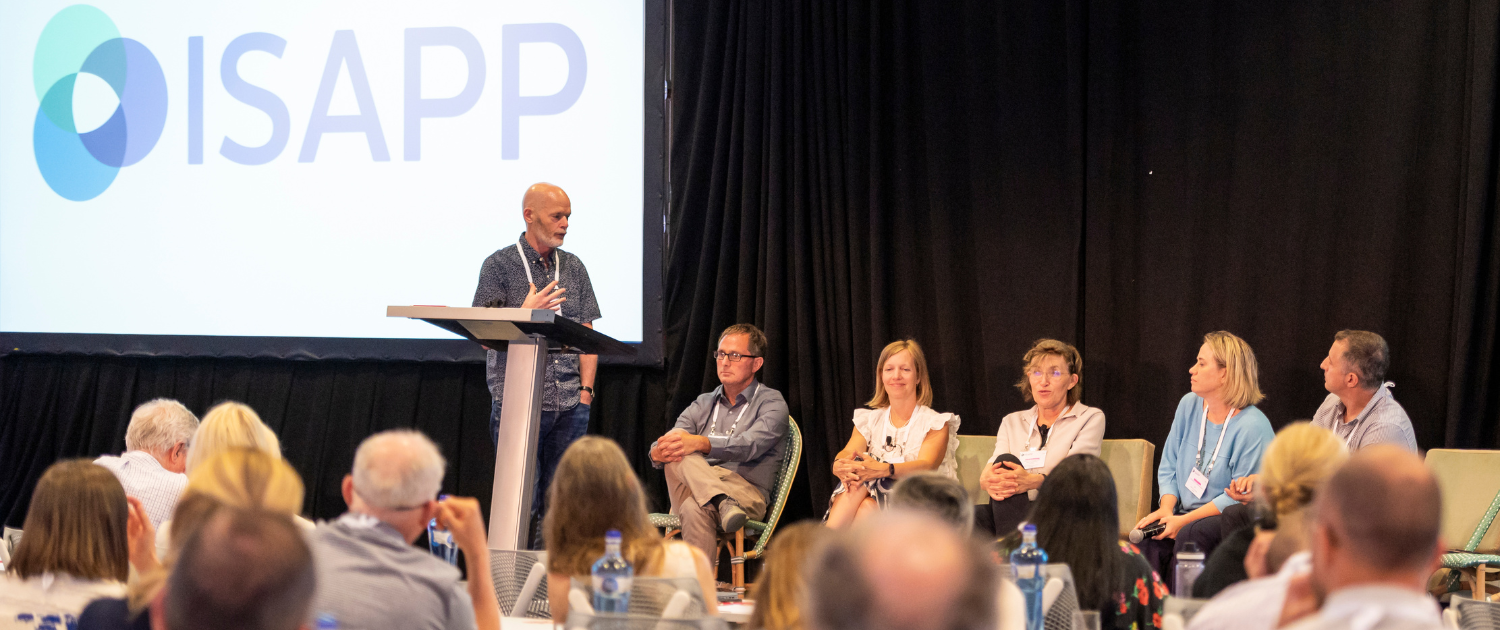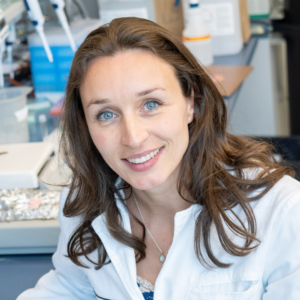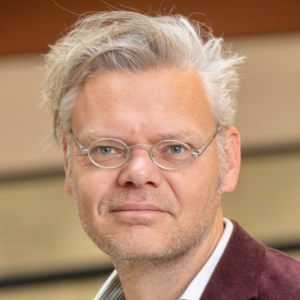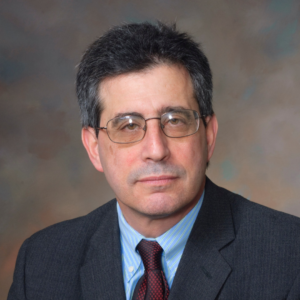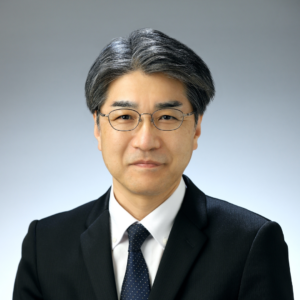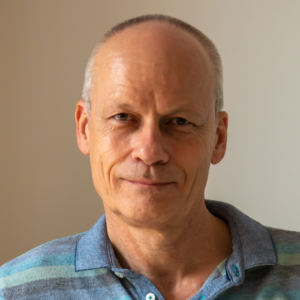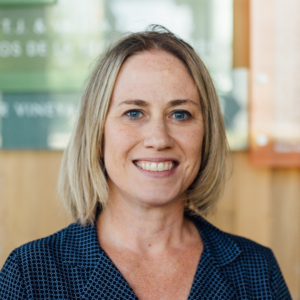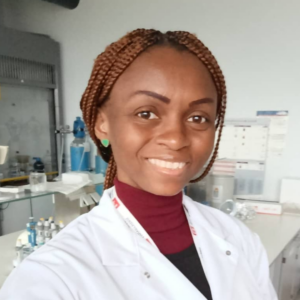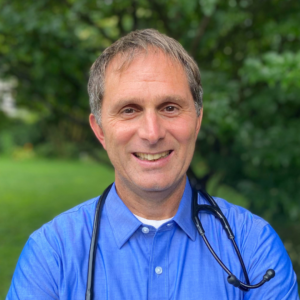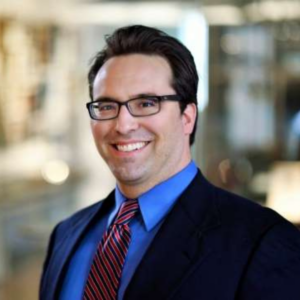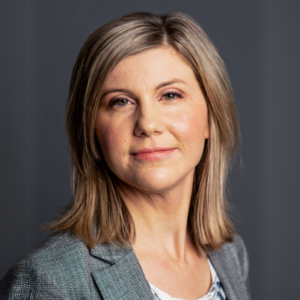The ISAPP 2025 meeting program features plenary speakers sharing cutting-edge research, including the following:
Prof. Paul de Vos PhD
Prof. Paul de Vos PhD is an immunologist specializing in the impact of dietary molecules on immunity and disease prevention. His research spans over two decades, focusing on autoimmune diabetes, cell encapsulation, and the interaction between food components and immune health. He was a visiting scientist at the Joslin Diabetes Institute, Harvard Medical School, from 1997-1998. At the University Medical Center Groningen, he leads a multidisciplinary research group composed of immunologists, polymer chemists, and endocrinologists. His team has been at the forefront of studying dietary fibers such as pectins, beta-glucans, and fructans, demonstrating their direct interaction with immune receptors. Prof. de Vos has published over 300 peer-reviewed papers and holds seven patents on food components and health. He is a principal investigator at the Carbohydrate Competence Center (CCC) and a member of various international research consortia, including those funded by the Juvenile Diabetes Research Foundation (JDRF).
Dr. Carolina Tropini PhD
Dr. Carolina Tropini PhD is an Assistant Professor at the University of British Columbia in the Department of Microbiology and Immunology and the School of Biomedical Engineering, and a Canada Tier 2 Research Chair in Quantitative Microbiota Biology for Health Applications. In 2020 she was nominated a Paul Allen Distinguished Investigator, and she was the first Canadian to be awarded the Johnson & Johnson Women in STEM2D Scholar, which was granted in the field of Engineering. She is the inaugural Alan Bernstein Canadian Institute for Advanced Research (CIFAR) Fellow in the Humans & the Microbiome Program and a Michael Smith Foundation for Health Research Scholar. In 2019, she was nominated as a CIFAR Azrieli Global Scholar.
The Tropini lab is investigating how a disrupted physical environment due to altered nutrition or concurrent with intestinal diseases affects the microbiota and host at a multi-scale level. They are a cross-disciplinary group that incorporates techniques from microbiology, bioengineering and biophysics to create highly parallel assays and study how bacteria and microbial communities function, with the goal of translating the knowledge gained to improve human health.
Dr. Tropini conducted her PhD in Biophysics at Stanford University. Her studies in the laboratory of Dr. KC Huang combined computational and experimental techniques to investigate bacterial mechanics and morphogenesis. In 2014 she received the James S. McDonnell Foundation Postdoctoral Fellowship Award, and she joined the laboratory of Dr. Justin Sonnenburg at Stanford. During her post-doc, Dr. Tropini applied her background in biophysics to study the impact of physical perturbations on host-associated microbial communities living in the gut.
Prof. Remco Kort PhD
2025 Sanders Award For Advancing Biotic Science Winner: Prof. Remco Kort PhD is a microbiologist dedicated to advancing research on commensal bacteria and their impact on human health. He is a Full Professor of Microbiology at the Vrije Universiteit Amsterdam and ARTIS-Micropia Chair, where he develops innovative ways to engage the public with microbiology. As co-founder of the Yoba for Life Foundation, he has played a key role in introducing probiotic yogurt to communities in Uganda, Tanzania, and Ethiopia, supporting local health and entrepreneurship. His research spans microbiome interventions, microbial genomics, and fermented foods, and he has been instrumental in citizen science initiatives on vaginal and gut health. Beyond academia, he is an advocate for planetary health and co-developer of ARTIS-Micropia, the world’s first microbe museum. He has authored over 100 scientific publications and the popular science book ‘De Microbemens’.
Prof. Howard Bauchner MD
Prof. Howard Bauchner MD will speak on the expert panel in addition to his plenary talk.
Prof. Bauchner is a Professor of Pediatrics and Public Health at Boston University Chobanian and Avedisian School of Medicine. He served as the 16th Editor in Chief of JAMA and the JAMA Network between 2011 and 2021 and Editor in Chief of Archives of Disease in Childhood between 2003 and 2011. At BUSM, prior to JAMA, he was Vice-Chair of Research for the Department of Pediatrics and Chief, Division of General Pediatrics. He is a member of the National Academy of Medicine and an honorary fellow of the Royal College of Paediatrics and Child Health. He has been a Visiting Scholar at the National University of Singapore between 2022-2024 and has continued to write on issues such as conflict of interest, pre-print servers, drug-approval, open-science, and the role of AI in scientific publication.
At JAMA Prof. Bauchner focused on publishing important and novel research articles including randomized clinical trials, opinion pieces, and special communications, improving and expanding clinical content, using electronic/digital approaches to enhance communication, ensuring a commitment to innovation and increasing diversity. During his tenure followers on social media increased from ~13,000 to ~1,200,000 and the electronic table of contents was distributed to over 1,000,000 individuals each week. In print, via eTOC, and social media content published by JAMA reached over 1.5M physicians worldwide each week. Views (PDF and HTML) increased from 10M in 2011 to over 100M in 2020 (50% from outside the U.S.). Podcast downloads increased from 300,000 in 2014 to 6M and videos were viewed more than 16M times in 2020. The print journals were redesigned for the first time in over 20 years and the website updated twice. All 9 of the specialty journals were renamed (Archives of Pediatrics became JAMA Pediatrics, etc.), 4 new journals were launched – JAMA Oncology (2015), JAMA Cardiology (2016), and JAMA Network Open (2018); and JAMA Health Forum (2020/2021), the latter 2 are both fully open-access journals. Howard authored and recorded over 200 editorials and podcasts (including live-stream events) discussing issues such as open-science (data-sharing, pre-print servers, open access), conflict of interest, diversity in medicine, the interpretation of randomized clinical trials, mentoring, maintaining editorial standards during a pandemic, the language and reporting of race and ethnicity, scientific misconduct, authorship and team science, and numerous health policy issues, including healthcare as a right, waste in medicine, the cost of health care, health care disparities, and race, racism, equity, and poverty in medicine.
Prof. Haruki Kitazawa PhD
Prof. Haruki Kitazawa PhD is the Dean of the Graduate School of Agricultural Science at Tohoku University. He earned his PhD in 1993 from Tohoku University, focusing on the immunomodulatory functions of phosphopolysaccharides produced by lactic acid bacteria.
He has been actively involved in international research collaborations, particularly with CERELA-CONICET, exploring the potential of immunomodulatory pro- and postbiotics. His outstanding contributions to the field are reflected in his authorship of over 300 internationally peer-reviewed publications on pro- and postbiotics. His current research focuses on the immunoregulatory properties of immunobiotics and immunosymbiotics, a specialized group of probiotics that positively influence the mucosal immune system in the gut. Additionally, he is pioneering the development of an advanced immunobiotic evaluation system, utilizing pattern recognition receptors in vitro, employing diverse livestock cell lines to enhance scientific understanding and application in animal and human health.
Dr. Guy Vergères PhD
PD Dr Guy Vergères leads the research group Functional Nutritional Biology at Agroscope in Bern, Switzerland. He also leads WG3 of the COST Action “Promoting Innovation of fermented foods’ (PIMENTO)” on the health benefits/risks of fermented foods. Guy Vergères teaches nutrigenomics at ETH-Zurich and the University of Lausanne. His translational research focuses on the nutritional properties of fermented foods making use of the recent advances in analytical strategies in food (foodomics) and nutrition (nutrigenomics) sciences. His research spans from the genomic selection of bacterial strains to produce fermented food with targeted composition to intervention studies in animal models and humans investigating the impact of food fermentation on metabolism and finally to observational studies aimed at determining the relationship between the intake of fermented foods or live microbes and human health.
Prof. Maria Marco PhD
Dr. Maria Marco, PhD, is a Professor in the Department of Food Science and Technology at the University of California, Davis. She earned her bachelor’s degree in microbiology at The Pennsylvania State University and her PhD in microbiology at the University of California, Berkeley. As a postdoc at NIZO food research in The Netherlands, she developed a love for lactic acid bacteria and the importance of these microorganisms in our foods and the digestive tract. Her postdoctoral studies led to the discovery that probiotics are metabolically active in the intestine and responsive to dietary intake. Dr. Marco started her lactic acid bacteria and gut health laboratory at UC Davis in 2008 and has built an internationally-recognized, NIH, USDA, and NSF funded research program on probiotics, fermented foods, and dietary modulation of the gut microbiome. Dr. Marco also consults with and has received funding from international foundations and companies to investigate how certain microbes in foods or supplements may benefit health. She is active with science communication activities such as the EATLAC project and is the instructor for two food microbiology courses. Dr. Marco received the American Society for Microbiology Distinguished Lecturer award in 2012. Recently, she founded the ongoing Gordon Research Conference series on Lactic Acid Bacteria. Dr. Marco attended her first ISAPP meeting as a postdoc and participated as an invited expert before joining the ISAPP Board of Directors in 2019.
Dr. Peijun Tian PhD
2025 Glenn Gibson Early Career Researcher Award Winner: Peijun Tian is an Associate Professor and Master’s supervisor at the School of Food Science and Technology, Jiangnan University. He earned his PhD in Food Science from Jiangnan University (January 2021) and was a visiting scholar at the APC Microbiome Institute, Ireland (September 2019–October 2020). He completed postdoctoral research at Jiangnan University, supported by the prestigious “National Postdoctoral Program for Innovative Talent” (top 1% in China). His research focuses on elucidating the interactions between gut microbiota and brain function, exploring the application of probiotics to mitigate stress, support neurodevelopment, and address neurodegenerative disorders. He has authored over 30 peer-reviewed articles, including three ESI Highly Cited Papers, with an H-index of 23 (Google Scholar, March 2025). In 2025, he was honored with the Glenn Gibson Early Career Researcher Award by the International Scientific Association for Probiotics and Prebiotics (ISAPP).
Josiane Kenfack, MSc, PhD student
2025 Gregor Reid Award for Outstanding Scholars in Developing Nations Winner: Josiane Kenfack is a PhD student passionate about scientific research aimed at improving women’s health through the advancement of studies of the vaginal microbiome and probiotics. Josiane is co-coordinator of a citizen science project in Cameroon, the LEKE project. This project was inspired by the Isala project (https://isala.be/en/) which aims to better understand the female microbiome while raising awareness about vaginal health and breaking taboos. Through the LEKE project, Josiane and colleagues have conducted field activities to explore vaginal and menstrual health and promote good practices with women and men in rural and urban areas. In her ongoing research, she is investigating beneficial
lactobacilli that could serve as biotherapeutics or probiotics development to combat conditions such as bacterial vaginosis, HIV, and sexually transmitted infections which are still prevalent in Africa. while she co-coordinates in Cameroon the IMVAHA project which aims to determine the impact of different menstrual products on the vaginal microbiome.
Prof. André Marette PhD
Dr. André Marette is a Professor of Medicine and researcher at the Heart and Lung Institute Hospital Center (IUCPQ), and at the Institute of Nutrition and Functional Foods (INAF) at Laval University. He holds a Valbiotis Research Chair in plant bioactives and metabolic liver diseases and a Pfizer Research Fund in the pathogenesis of insulin resistance and cardiovascular complications.
Dr. Marette is an international renowned expert on how nutrition and the microbiome modulate immunometabolic pathways involved in obesity and cardiometabolic diseases (CMD). He is investigating the metabolic impact of nutritional interventions and microbiome-based therapeutics (probiotics, prebiotics) using both clinical and pre-clinical studies, and uses various cellular models and molecular tools to discover novel disease biomarkers and mechanistic targets. Dr. Marette’s research work has been published in over 330 papers, reviews and book chapters and also authored two books.
He has received several awards for his work including the prestigious Charles Best Award and Lectureship from the University of Toronto for his overall contribution to the advancement of scientific knowledge in the field of diabetes.
The expert panel “Clinical translation of biotic science: How can we enhance impact for clinical practice?” will include the following speakers.
Prof. Daniel Merenstein MD
Dr. Daniel Merenstein, MD, is a Professor with tenure of Family Medicine at Georgetown University, where he also directs Family Medicine research. Dr. Merenstein has a secondary appointment in the undergraduate Department of Human Science, in the School of Health. Dr. Merenstein teaches two undergraduate classes, a research capstone and a seminar class on evaluating evidence based medical decisions. He has been funded by PCORI, NIH, USDA, foundations and industry. The primary goal of Dr. Merenstein’s research is to provide answers to common clinical questions that lack evidence and improve patient care. Dr. Merenstein is a clinical trialist who has recruited over 2,000 participants for 10 probiotic trials since 2006. He is an expert on probiotics, on antibiotic stewardship in outpatient settings, and also conducts HIV research in a large women’s cohort. He sees patients in clinic one day a week. Dan lives in Maryland with his wife and 4 boys.
Prof. Hania Szajewska MD
Hania Szajewska, MD, is Professor and Chair of the Department of Paediatrics at the Medical University of Warsaw. Among her various functions, she served as the Editor-in-Chief of the Journal of Pediatric Gastroenterology and Nutrition; a member of the Council, and then as the General Secretary of the European Society for Paediatric Gastroenterology, Hepatology and Nutrition (ESPGHAN); the Secretary of the ESPGHAN Committee on Nutrition. Most recently, she joined the Board of Directors of the International Scientific Association for Probiotics and Prebiotics (ISAPP). Prof. Szajewska has broad interests in paediatric nutrition but her research focuses on the effects of early nutritional interventions on later outcome (especially food allergy); and the gut microbiota modifications such as with various biotics (probiotics, prebiotics, synbiotics, postbiotics). She is or has been actively involved in several European Union-funded research projects. She is an enthusiastic advocate for the practice of evidence-based medicine. She has co-authored more than 350 publications. In 2020 and 2021, Prof. Szajewska has been ranked as one of the world’s top 2% most-cited researchers.
Dr. Geoffrey Preidis MD PhD
Dr. Geoffrey A. Preidis, M.D., Ph.D., Associate Professor of Pediatrics at Baylor College of Medicine in Houston, Texas, is a board-certified Pediatric Gastroenterologist with basic and translational research expertise in nutrition-sensitive mechanisms that regulate intestinal and liver physiology, growth, and development. Based at Texas Children’s Hospital, which contains the largest neonatal intensive care unit in the United States, Dr. Preidis explores how the intestinal microbiome develops in extreme prematurity and how probiotics might be used to reduce the risk of necrotizing enterocolitis, sepsis, feeding intolerance, growth failure, and death in this vulnerable population. His biomedical research career began during undergraduate studies at Harvard University. He developed an interest in Neonatal Gastroenterology while in the Medical Scientist Training Program at Baylor College of Medicine. He completed internship and residency training in Pediatrics, as well as fellowship training in Pediatric Gastroenterology, Hepatology & Nutrition, at Baylor College of Medicine.
Kristina Campbell, Science writer
Kristina Campbell (M.Sc.) is a science and medical writer who specializes in creating books and other scientific resources on the gut microbiome and biotics. She holds degrees from University of Toronto and University of British Columbia, and now lives in Victoria (Canada).
ISAPP Discussion Groups will include the following experts.
Group 1
Shijie Cao
Michael Gänzle
Carol Johnston
Haruki Kitazawa
Guy Vergères
Group 2
Premysl Bercik
André Marette
Liam O’Mahony
Vanessa Sperandio
Group 3
Jean-Paul Pirnay
Nathaniel Ritz
Torben Sølbeck Rasmussen
Group 4
Matthew Amicucci
Clara Cho
Sean Gibbons
Elaine Holmes
Bruce Y. Lee
Sara Martini
Kim Watson
Group 5
Jonathan Chapman
Magali Cordaillat-Simmons
Karen Madsen
Siobhan McCormack
Jacques Ravel
Group 6
Kjersti Aagaard
Howard Bauchner
Jose Clemente (virtual)
Eldin Jasarevic
Katri Korpela (pre-recorded)
Daniel Merenstein
Anne Salonen
Mary Ellen Sanders
Daniel Tancredi

